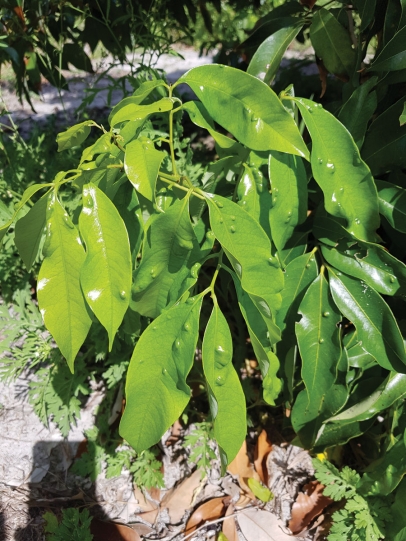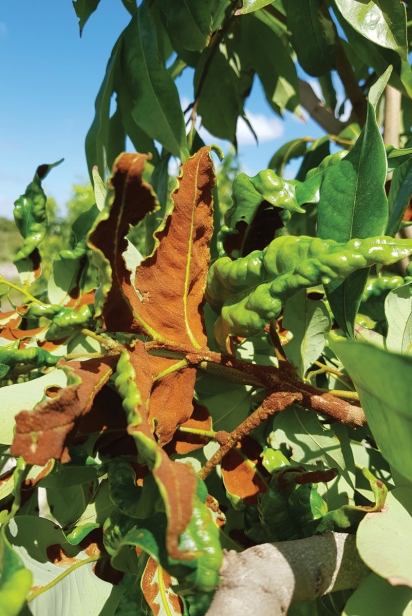LEM, a Serious Lychee Pest in Florida
In February 2018, there was a disturbing discovery in Pine Island. The damaging pest, the lychee erinose mite (LEM), was found on a few trees in a commercial lychee grove. This pest had been in Florida twice before, once in 1955 in Sarasota and again in 1993 in Coral Gables. Both times, the pest was eradicated. This time, eradication is still the goal, but it will be more difficult because LEM has now spread to 13 counties within Florida.
The lychee erinose mite is a microscopic mite that feeds on the leaves, stems, flowers and fruit of lychee. It prefers new growth and cannot be killed by pesticides. LEM is so small that it’s able to move through air currents and on honeybees. It can also be spread by fruit movement or tools used to prune lychee trees. LEM only attacks lychee trees and does not pose a danger to related trees, such as the longan.
In Florida, the leading producer of lychees in the country, Miami-Dade produces 60 percent of those lychees. LEM, which affects fruit production, can reduce fruit yield by up to 80 percent.
Questions about your tropical fruit trees? Call a UF/IFAS extension agent at 305-248-3311.
Scout for LEM by looking at your tree’s leaves for the characteristic leaf blisters [1] or a rust-colored hairy mass [2]. If you think you have LEM on your trees, contact Florida Department of Agriculture and Consumer Services (FDACS) at 1-888-397-1517 and report the find. You can also contact me at 305-679-0227 and I can put you in touch with FDACS.
Once alerted, FDACS will contact you, confirm you have LEM, and then treat your trees for the pest. This service is free because they are trying to eradicate the pest throughout the state. Treatment involves pruning off the infected parts of your tree, destroying what was pruned off, and spraying sulfur on the new growth to protect it from the mite. Sulfur is sprayed at 14-day intervals up to eight times. The spray cannot kill the mite, but it does protect the tree from re-infestation. The sulfur is organic and the brand is Microthiol Disperss, with an emergency label obtained specifically for LEM.






